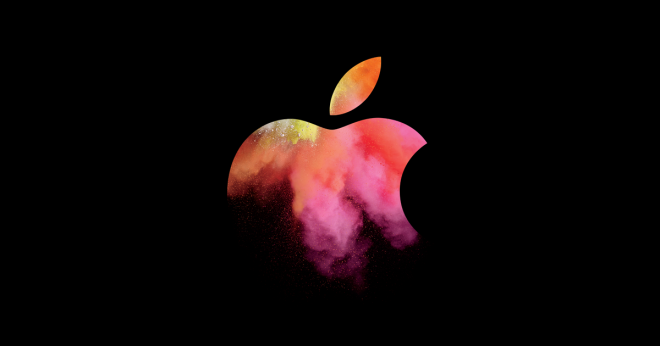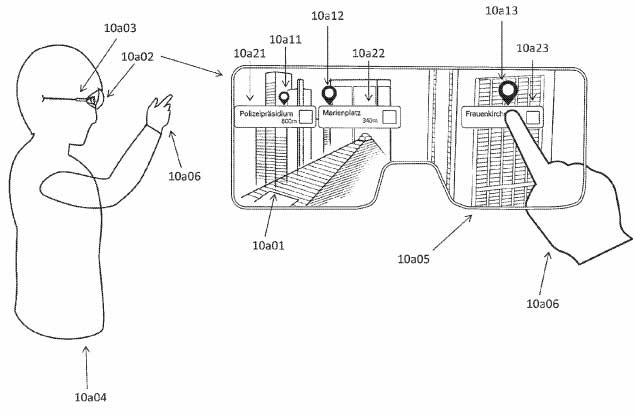
Months after exploring the markets of smartphones, tablets and smartwatches, Apple is now preparing to enter the world of augmented reality (AR). The iPhone maker has started developing Google Glass-like smart glasses with a proprietary AR technology.
Apple formally revealed its plans at the time of previewing iOS 11 at its WWDC event in June. The Tim Cook-led company showcased ARKit -- a platform that helps developers build apps with an AR experience -- that will be a part of the new iOS version. But now, the company is set to shape the future of AR apps with its own smart glasses that has surfaced in a patent application.

The application, filed with the US Patent and Trademark Office (USPTO) on July 27, describes how the device will overlay computer-generated images on a real environment. "The present disclosure is related to a method for representing points of interest in a view of a real environment on a screen of a mobile device with functionality for interaction with a user," reads the description in the patent filing.
Unlike Google Glass that was debuted back in April 2013 as one of the first AR-enabled hardware to identify places and buildings, Apple is planning to extend the experience through its latest development. The company is appeared to enable its innovation to distinguish even some of the small elements in our real life -- as minimal as the particulars surfaced on a car's dashboard.
Leveraging iPhone
Apple is set to leverage iPhone to take the augmented reality to new levels. The iPhone 8 is speculated to be the first model by the company to support AR by default.
The ongoing development, as suggested by the mock-ups in the patent application, will let you understand more about your surroundings by holding your iPhone. While the camera sensor will capture the real environment, the software will provide on-screen information.
However, alongside utilising the iPhone, the AR technology will be applied to a set of "semi-transparent spectacle or glasses" to deliver an even realistic and advanced visual experience. The patent mentions the development as a "video-see-through head-mounted display (HMD)" that would be equipped with a camera to record a real environment and include sensors to detect motion. Further, the motion sensors' presence on the glasses would enable interaction with the software.
Resources from previous acquisitions in the backend
Apple acquired Germany-based AR startup Metaio in May 2015 and bought eye-tracking company SensoMotric Instruments earlier this year. Both these acquisitions are likely to contribute together to bring AR to the iPhone world.
Notably, Metaio is already working with automakers like Ferrari to develop an interactive, virtualised showroom experience. This initial model could help Apple to market its self-driving cars in the future. But meanwhile, AR tech is what the company has for its iPhone and smart glasses.
At last year's Utah Tech Tour, CEO Cook proclaimed the potential of AR for Apple. "AR I think is going to become really big," the executive had told the audience in a Q&A session in Utah, without detailing any official progress.
'Harder to achieve'
Analysts estimate a strong growth of dedicated AR and virtual reality (VR) headsets in the coming future. But at the same time, AR believed to be harder to achieve than VR due to its limited availability in the current market.
Ryan Reith, program vice president with IDC's Worldwide Quarterly Mobile Device Trackers, considered AR to bring a "fundamental change" in the industry in the next five-year's time. "We believe that many industrial jobs will fundamentally change because of AR in the next five years, and these are much more opportunistic markets for dedicated AR headsets than the consumer market," Reith stated in a recent market research report.
In addition to Apple, companies like Epson, Google, Intel and Microsoft are working on some secret projects to give a final shape to the emerging AR world. Developments like ARKit and Microsoft's HoloToolKit would enable the primary manufacturers with appropriate content for their technologies.









